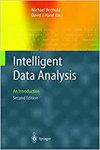基于社会经济发展影响的老年保健品设计伦理
IF 0.8
4区 计算机科学
Q4 COMPUTER SCIENCE, ARTIFICIAL INTELLIGENCE
引用次数: 0
摘要
背景:人口老龄化是许多国家必须经历的历史阶段,目前老年保健品的设计和开发已经不能满足老年人日益增长的需求。目的:探讨老年保健品伦理设计对社会经济发展的影响,为老年保健品的发展方向提供理论依据。方法:本研究对268名中年人进行问卷调查,记录其购买老年保健品的意愿、原因、顾虑、满意度及未来需求。结果:调查对象中有181人购买过老年保健品,占67.36%;受访者最关心的是老年保健品的质量安全,分别占92.56%和91.85%,其次是可操作性(68.46%);老年人使用老年保健品遇到的问题主要是操作问题,占比65.37%;高安全性(86.13%)和高质量(79.55%)是被调查者对老年保健品未来发展的主要需求。73.61%的30-40岁受访者认为智能养老产品非常好;65.89%的41-50岁受访者认为智能养老产品非常好;51 ~ 60名被调查者中有52.67%的人认为智能养老产品非常好;60岁以上受访者中有47.82%表示愿意尝试智能养老产品。结论:高质量、高安全性是老年保健品未来发展的主要需求。基于以人为本的设计伦理理念制造的老年保健品,可以极大地满足老年人追求晚年幸福生活的愿望,促进老年产业经济的蓬勃发展。本文章由计算机程序翻译,如有差异,请以英文原文为准。
Social and economic development impact of elderly health care products based on design ethics
BACKGROUND: The aging of the population is a historical stage that many countries must experience, and the current design and development of elderly health care products can no longer meet the increasing demands of the elderly. OBJECTIVE: The impact of ethical design of elderly health care products on socio-economic development is explored to provide a theoretical basis for the development direction of elderly health care products. METHODS: In this study, a questionnaire survey is conducted on 268 middle-aged people to record the subjects’ willingness to purchase elderly health care products and their reasons, concerns, satisfaction, and future demands. RESULTS: Among the subjects, 181 people have purchased elderly health care products, accounting for 67.36%; the subjects are more concerned about the quality and safety of elderly health care products, accounting for 92.56% and 91.85% respectively, followed by operability (68.46%); the problems encountered by the elderly using elderly health care products are mainly operational problems, accounting for 65.37%; and high safety (86.13%) and good quality (79.55%) are the subjects’ main demands for future development of elderly health care products. 73.61% of the 30–40 year old subjects said that the intelligent aged care products were very good; 65.89% of the 41–50 year old subjects said that the intelligent aged care products were very good; 52.67% of the 51–60 subjects thought that intelligent elderly care products were very good; and 47.82% of the subjects whose age were over 60 expressed their willingness to try intelligent elderly care products. CONCLUSIONS: Good quality and high safety are the main demands for the future development of elderly health care products. The elderly health care products manufactured based on the people-oriented design ethics concept can greatly meet the aspirations of the elderly to pursue a happy later life, and promote the vigorous development of the elderly industrial economy.
求助全文
通过发布文献求助,成功后即可免费获取论文全文。
去求助
来源期刊

Intelligent Data Analysis
工程技术-计算机:人工智能
CiteScore
2.20
自引率
5.90%
发文量
85
审稿时长
3.3 months
期刊介绍:
Intelligent Data Analysis provides a forum for the examination of issues related to the research and applications of Artificial Intelligence techniques in data analysis across a variety of disciplines. These techniques include (but are not limited to): all areas of data visualization, data pre-processing (fusion, editing, transformation, filtering, sampling), data engineering, database mining techniques, tools and applications, use of domain knowledge in data analysis, big data applications, evolutionary algorithms, machine learning, neural nets, fuzzy logic, statistical pattern recognition, knowledge filtering, and post-processing. In particular, papers are preferred that discuss development of new AI related data analysis architectures, methodologies, and techniques and their applications to various domains.
 求助内容:
求助内容: 应助结果提醒方式:
应助结果提醒方式:


